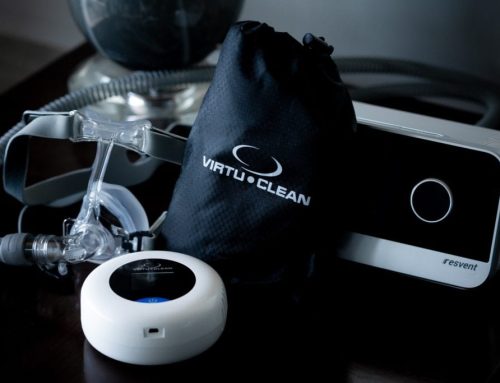Table of Contents
Can Sleep Apnea be a Valid Criminal Defense?
Sleep Apnea is the most common sleep disorder in America, with the condition being reported in up to 30% of the adult population. People who suffer from chronic obstructive sleep apnea number above 25 million.
With sleep apnea being so prevalent, it’s unsurprising that it is sometimes used as a criminal defense. Cases of negligence or dangerous driving are often attributed, by defendants and their lawyers, to sleep apnea.
Is this a valid defense, and should you ever use it if you find yourself in legal trouble?
The Basics of a Sleep Apnea Defense
If you’ve recently been diagnosed with sleep apnea and have started using a positive airway pressure device and CPAP cleaner, you will likely want to know all that you can about the condition.
Understanding how it relates to criminal cases will be one aspect of your education.

The basics of a sleep apnea defense are relatively simple.
An accused will offer the defense that they are not guilty for their actions on the basis of sleep apnea, often claiming that they suddenly fell asleep before the event took place. Cases are usually related to negligent use of machinery or vehicular accidents caused by a driver who fell asleep at the wheel.
In a 1994 case reported by U.S. News, Michael Ricksgers was accused and later convicted of murdering his wife in their home. The defense claimed that the event was related to a sleepwalking episode brought on by sleep apnea. However, the prosecution presented a case illustrating that Ricksgers knew his wife was planning a separation and plotted and carried out her murder.
This case is about as extreme as you can get, and the jury didn’t buy-in to the apnea defense.
Is the Defense Strong and Valid?
Ignoring the murder case, is it reasonable for sleep apnea to be used as a defense for other crimes, particularly those related to negligence?
The strength of a sleep apnea defense would depend on the case and the attorney that presented it. You can gain context by visualizing some scenarios.
- A theme park operator falls asleep at the ride controls, causing injury or even death to park guests.
- A machinery operator who suffers from apnea and insomnia falls asleep while working in a manufacturing plant, causing injury to colleagues.
- A driver falls asleep on an expressway, causing a multi-vehicle accident that results in death or injury to other parties.
In all these scenarios, we can assume that apnea could very well be a contributing factor, but that doesn’t necessarily make it a strong defense. People who suffer from chronic sleep apnea are usually aware of the condition. Somebody who knows that they are sleep deprived should not reasonably expect to be able to operate a vehicle, electronics, or complex machinery.
If a defendant knew that they had sleep apnea and had not sought treatment, then that would provide even more evidence for the prosecution, which would argue that the accused is guilty through their lack of action.
In your own life, you use devices to help relieve your condition. A CPAP machine helps you breathe at night, ensuring high-quality rest. You can use a CPAP cleaner to sterilize your machine and prevent illness. When you have taken steps like these to control your condition, your risks of committing a crime, even unintentionally, are drastically diminished.
Sleep Apnea Should Never be a Defense in a Criminal Case
Most competent lawyers would agree that sleep apnea is not a reliable defense in a criminal case. Only in very specific circumstances (such as not being aware of the condition) would an apnea defense have any chance of standing up in court.

You should aim to reduce your risk of doing anything that could be criminally negligent. You can control your apnea. Talk to a physician if you are experiencing symptoms while undergoing treatment. Warning signs that treatment isn’t working include:
- Headaches in the morning.
- Tiredness throughout the day.
- Feeling unrested after long periods of sleep.
- Sore throat and dry mouth in the morning.
- Observed gaps in breathing during sleep (by your spouse or family member).
CPAP Cleaners and Other Devices That Help Treat Sleep Apnea
With diagnosis, a physician will recommend CPAP therapy or other treatments. Specific devices can include.
- A CPAP machine that maintains positive airway pressure to prevent breathing cessation.
- A CPAP cleaner that sterilizes masks and tubing to prevent contamination.
- CPAP wipes that allow for quick cleaning while traveling.
It’s interesting to learn about apnea as a criminal defense, but it’s more important to note that it is not viable in most cases. Follow the advice of your doctor, use your CPAP cleaner and machine daily, and avoid getting into high-risk scenarios when you are suffering from apnea side effects.
Vigilance on your part will help ensure that you never have to face a court for a crime related to apnea.


 Shop
Shop



